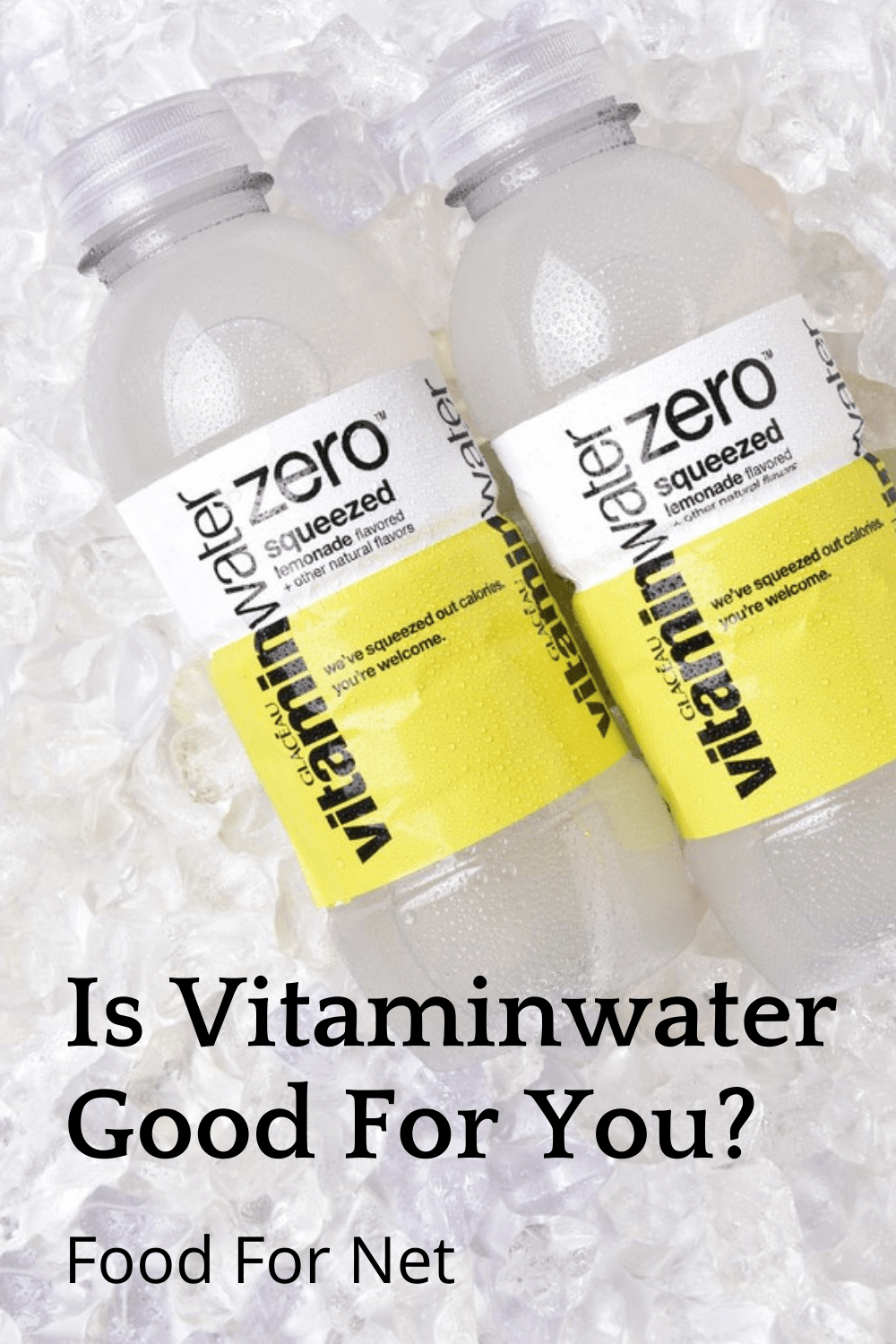
Vitaminwater is one of Cola-Cola’s attempts to tap into the health and wellness industry. The drink sounds like it should be healthy. After all, you’re getting vitamins and water. How is that not a good thing? Still, we have to ask, is Vitaminwater good for you or is the whole thing just a marketing ploy?
There are currently around 11 Vitaminwater products (more if you count the regular flavors and sugar free ones separately). Some flavors are added to or removed from the range over time and there may be differences depending on where you live.
However, the general pattern is the same. The products all mostly consist of water, with some vitamins, electrolytes, and antioxidants added in. Some have an extra ingredient or two to make them stand out, like prebiotic fiber in one version or biotin in another.
Is Vitaminwater Good For You?
- Types Of Vitaminwater
- The Benefits Of Vitaminwater
- Why Vitaminwater Isn’t As Good As It Sounds
- Vitaminwater Alternatives
- Final Thoughts
Types Of Vitaminwater
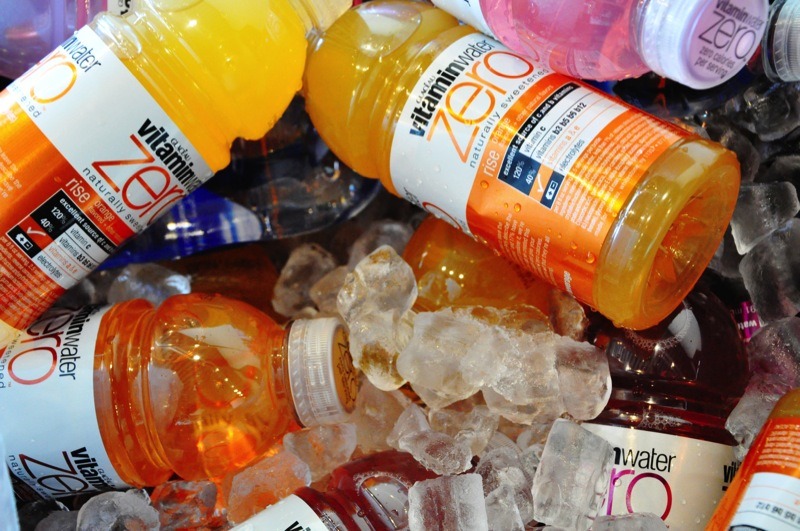
To begin with, we need to talk about the different Vitaminwater products out there. These vary in terms of flavor and nutrient content, which gives them different advantages.
You’ll normally find 20 fl oz bottles of Vitaminwater. Other sizes can sometimes be found, but these are much rarer.
Most of the flavors come in a zero sugar version, but some do have a sugar-containing version too. The zero sugar on relies on sweeteners, often stevia. However, it’s worth double checking the type of sweetener used, as some of the products once used artificial sweeteners.
- Gutsy (watermelon peach): Prebiotic fiber, which may provide food for your gut bacteria, along with vitamins C, B3, B5, B6, B12, and electrolytes.
- XXX (acai-blueberry-pomegranate): Vitamins C, B5, B6, B12, A, along with manganese and electrolytes.
- Look (blueberry hibiscus): Vitamins B3, B5, B6, and B12, along with the antioxidants vitamin A and lutein, which may help to include eye health. Vitamin E and electrolytes are present too.
- Shine (strawberry lemonade). Vitamins C, B5, B6, B12, E, along with electrolytes and biotin. The name comes from the fact that this flavor is meant to help with the health of your hair and skin.
- Rise (orange). Vitamins C, E, B3, B5, B6, and B12, along with electrolytes and antioxidants.
- Revive (fruit punch). Vitamins C, B5, B6, and B12, along with potassium and electrolytes.
- Ice (blueberry lavender). Chamomile and l-theanine, which are meant to promote a calming sensation. Vitamins C, B5, B6, and B12 are present too, along with electrolytes.
- Go-Go (mixed berry). Ribose electrolytes, plus vitamins C, B5, B6, B12, and E.
- Reset (pineapple coconut). Vitamins C, B3, B5, B6, and B12, with potassium and electrolytes.
- Power C (dragonfruit): Vitamins C, B5, B6, and B12, along with taurine, zinc, chromium, and electrolytes.
- Squeezed (lemonade). Vitamins A, C, E, B5, B6, and B12, along with an ION4 system that is meant to help to promote hydration.
There are some common themes across the products, including the use of B vitamins, vitamin C, electrolytes, and antioxidants. The biggest difference between products is their flavor, although some have unexpected additions, like chamomile in the Ice flavor and lutein in Look.
The Benefits Of Vitaminwater
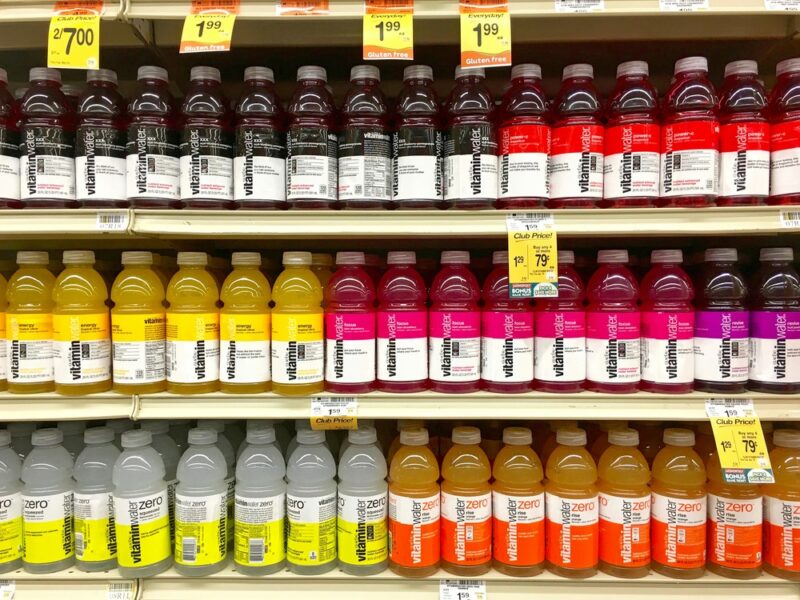
Hydration
The first benefit of Vitaminwater is obvious from the name – the water. Regardless of the product you choose, Vitaminwater is mostly just water. This makes it an easy way to stay hydrated.
The effect is important. We need water for many functions in our bodies. Water can help to improve our energy, aid digestion, and boost weight loss.
On the other hand, being dehydrated is no fun. It includes symptoms like fatigue, less urination, muscle cramping, and feeling lightheaded. Being dehydrated can be dangerous too, especially as hydration is linked to blood pressure.
There’s also the theory that drinks like Vitaminwater are more effective at hydrating you than plain water, due to the electrolytes.
The Flavor
Vitaminwater tastes more interesting than regular water. It’s a little like drinking juice, but not quite, as the flavors are often fairly mellow.
Flavored water works well. It tastes more interesting than plain water, making it easier to drink. Some people find it easier to hit hydration targets if they’re drinking flavored water rather than plain water.
Low Calorie Content
Some Vitaminwater products do contain sugar, but even so, you’re getting much less sugar than in a glass of cola or juice. There are also zero sugar products. These use sweeteners like stevia to give them sweetness, allowing you to avoid the sugar entirely.
The zero sugar products only contain around 5 or 10 calories per bottle. That’s impressive. Plus, these products often use natural sweeteners. That’s much better than products using artificial sweeteners.
The Electrolytes
Vitaminwater products often contain electrolytes too. Electrolytes are charged minerals that play a key role in our fluid balance. While we do get electrolytes through our food, our electrolytes can become imbalanced.
For example, people who intensively exercise lose electrolytes through their sweat. While regular water rehydrates them, they don’t get all of those electrolytes back. This is why electrolyte drinks can sometimes be powerful for athletes.
However, electrolytes are situation-specific. They’re powerful if you need them, but they’re not helpful if you don’t. In fact, consuming electrolyte-filled drinks regularly when you’re not losing electrolytes risks compromising your electrolyte balance as well.
Vitamins
Vitaminwater gets its name from the vitamins that are present – and there’s no denying that vitamins are important for your health. In contrast, vitamin deficiencies can cause a variety of symptoms and can cause long-term harm.
There’s also the chance that more of some vitamins could provide extra benefits, like how B vitamins are thought to promote energy.
The Antioxidants
Finally, some of the compounds used are antioxidants. These can help to fight free radicals in your body, potentially decreasing the risk of disease.
Some of these have other benefits too. For example, the flavor ‘look’ contains lutein and vitamin A, which may both help to improve your eye health.
The combination of water, vitamins, electrolytes, and other compounds could help promote your health in a variety of ways – more so than just drinking water. At least, that’s the theory.
Energy
Finally, Vitaminwater could provide some energy. This effect partly comes from the water content, as being hydrated can help you feel energized.
Some theories suggest that B vitamins can help with your energy too. They can’t do so directly, as energy needs to come from food. However, nutrients can play a role in energy-giving reactions in our body and B vitamins might be helpful in this way.
Why Vitaminwater Isn’t As Good As It Sounds
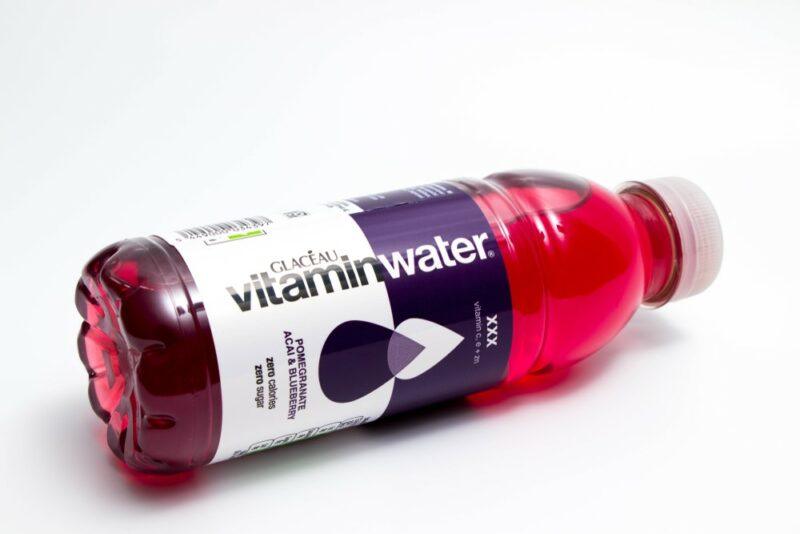
The Ingredients List
The front of the bottle makes Vitaminwater sound incredibly healthy. Another story emerges when you look at the back instead.
Let’s start with the regular products, like XXX Acai Blueberry Pomegranate. The drink is a good source of antioxidants, B vitamins, and electrolytes. Yet, the second and third ingredients on the Nutrition Facts label are crystalline fructose and cane sugar. In other words, sugar and more sugar.
A full bottle of the drink contains 32 grams of sugar. That’s much less than the same serving size of Coca-Cola (65 grams!), but 32 grams of sugar is still far too much to call the drink healthy.
You could turn to the sugar free version, which skips the sugar entirely. This version is healthier, but sweeteners are used instead. These tend to be natural sweeteners, so they haven’t been linked to many problems. Still, its best to avoid sugar and sweeteners whenever you can.
The Nutrients
As we mentioned earlier, the vitamins and minerals in Vitaminwater have some advantages, such as helping you to avoid nutrient deficiencies.
However, these nutrients aren’t as powerful as they seem. One problem is that you’re only getting a handful of nutrients. Electrolytes like calcium and potassium are common, along with the various B vitamins. Some products include vitamin C and vitamin A as well.
Many other important nutrients are missing entirely. In fact, you’re not likely to be deficient in any of the nutrients found in Vitaminwater. And, if you’re already getting enough of the nutrients, getting more mightn’t be very useful.
The nutrient content could even be a bad thing if you drink multiple bottles of Vitaminwater each day. There’s a risk that in doing so, you’d overdo it with some nutrients.
There’s another problem as well. You’re getting vitamins and minerals in a processed product, without all the other compounds that you find in real food. This isn’t nearly as powerful as getting those same nutrients through food.
The Antioxidants
Vitaminwater seems appealing because it offers antioxidants. However, we know that the effects of antioxidants depend on where they come from. Whole food sources of antioxidants can promote your health, partly because you’re getting other nutrients and plant-based compounds at the same time.
This may be why antioxidant supplements aren’t as powerful as you might expect. They might even be more harmful than helpful and Vitaminwater could easily have a similar effect.
Plus, there are many types of antioxidants, which have different impacts. Focusing on just a few types of antioxidant, like Vitaminwater does, offers fewer benefits than following a diverse antioxidant rich diet.
The Electrolytes
Electrolytes are incredibly helpful when your body needs them, but this often isn’t the case. Electrolyte-containing drinks like Vitaminwater often provide too much of a good thing, especially if you’re drinking them every day.
And honestly, most of us don’t need more electrolytes to begin with. We’re not sweating enough to cause significant electrolyte loss.
GMOs
Vitaminwater bottles have a disclaimer that says they use ingredients from genetically engineered crops (commonly known as GMOs).
GMOs are theoretically safe. Each type of GMO is extensively tested before it ever enters our food supply. However, there’s still much that we don’t know – including the long-term effects of GMOs. There’s also the chance that GMOs are safe for most people in most situations, but not everyone.
Because of these issues, it’s often best to avoid GMOs as much as possible.
It Doesn’t Give You Anything New
The apparently healthy features of Vitaminwater include the nutrients, electrolytes, and antioxidants. But, you should already be getting enough of all of these from your diet. Getting more isn’t going to help you much at all.
Beyond that, you’re just getting a drink that tastes good (assuming you like some of the Vitaminwater flavors). The taste alone isn’t enough of a reason to drink Vitaminwater regularly.
Vitaminwater Alternatives
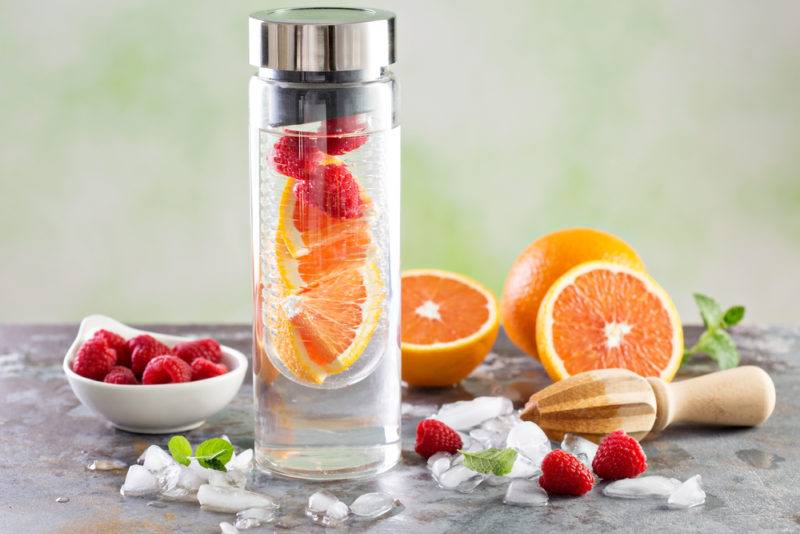
Most products like Vitaminwater have similar advantages and disadvantages. In the end, trying to add vitamins, antioxidants etc. to your water just doesn’t make sense.
Instead, you’re better off getting your nutrients and antioxidants from food. Look for nutrient-dense food, along with brightly colored fruits and vegetables. Doing so will give you many more benefits than Vitaminwater ever could.
As for a healthy drink, the best options are natural and low in calories.
Water is the single best choice here. If water seems too boring on its own, try adding some flavor in. A little lemon juice is a simple option. This makes your water taste better, without adding many calories or artificial ingredients. You can do the same with lime juice too.
Infused water is a more complex approach. You need to cut up pieces of fruit and leave them in your water for at least a few hours. Some types of vegetables can be added too, like cucumber or celery, along with herbs and spices.
Many hot drinks work well too, including tea and herbal tea, along with ginger, honey, and lemon drinks.
Finally, if you want nutrients, fruit and vegetable juice can be a good choice. Try not to overdo it on the fruit here, as fruit is high in sugar and it’s easy to drink more fruit juice than you intend to.
Final Thoughts
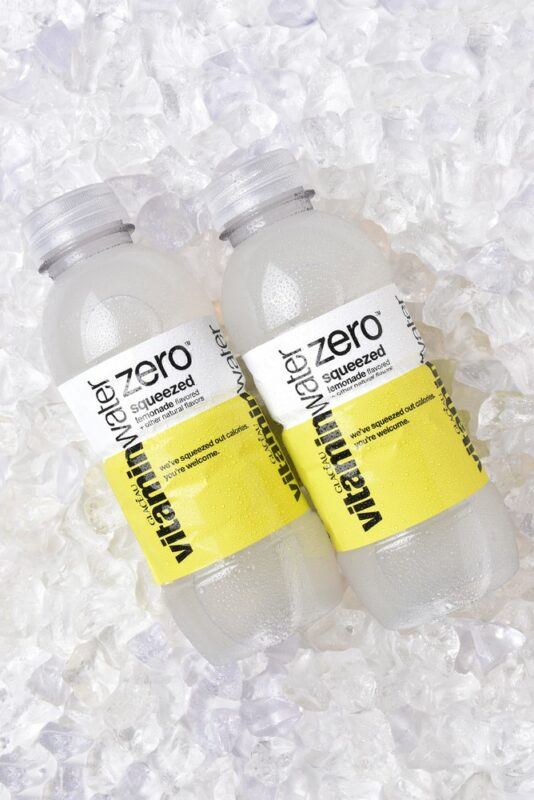
Vitaminwater could be helpful in some situations, like if you urgently need electrolytes. And, the beverage is healthier than many other options, like a glass of sugary soda or an energy drink.
Even so, Vitaminwater doesn’t help you much at all. Not only is it a highly processed product, but the various nutrients and antioxidants are less absorbable than the versions you find in regular food and drink.
The real question is, what do you gain? You’ll get more benefits by getting your nutrients from food and sticking to water as your main source of hydration. You could also turn to coconut water as a natural source of electrolytes.
And, if you want flavored water, why not make infused water using pieces of fruit, vegetables, and herbs? This can taste better than any of the Vitaminwater products and is better for you too.
Frequently Asked Questions
Does Vitaminwater Have Caffeine?
Most versions of Vitaminwater are entirely caffeine free. The exception is Vitaminwater Energy, which contains between 50 mg and 60 mg of caffeine. This is less caffeine than an energy drink, but still enough to energize you somewhat.
Does Vitaminwater Hydrate You?
Vitaminwater should hydrate you to some degree, as it mostly consists of water. The sugar free versions are likely to be the most effective, as sugar is slightly dehydrating. However, plain water is still more hydrating than Vitaminwater.
Is Vitaminwater Vegan?
Coca-Cola has confirmed that all Vitaminwater flavors and ranges are entirely vegan friendly. At least, this is true for the American version of the products. If you’re in another country, you may need to double check, as formulations vary from country to country.
Is Vitaminwater Good For Diabetics?
The sugar free versions of Vitaminwater can be helpful for diabetics, as they give you nutrients and water, without any sugar. Other versions of Vitaminwater aren’t so good for diabetics, as they contain a surprising amount of sugar.
Is Vitaminwater Better Than Gatorade?
This really depends on your definition of better. Vitaminwater typically contains a little less sugar than Gatorade and a broader range of vitamins. However, Gatorade tends to be better if you want electrolytes specifically.
That said, neither Vitaminwater or Gatorade is particularly healthy. They’re both highly processed drinks with additives. Some versions of each have a decent amount of sugar too, while others use alternative sweeteners that mightn’t be all that good for you.


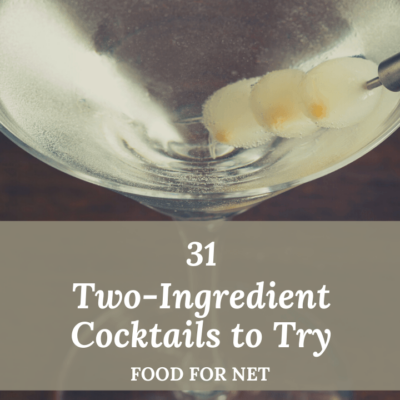

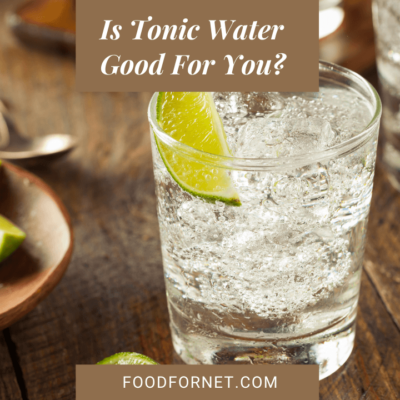



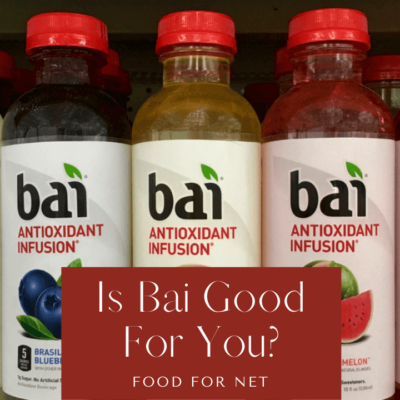
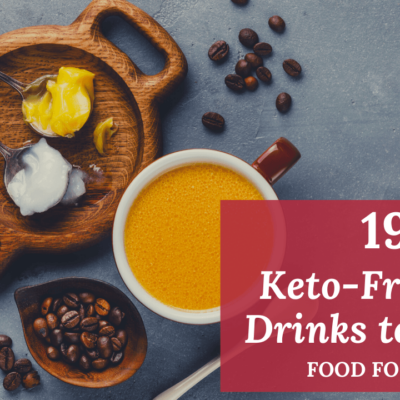

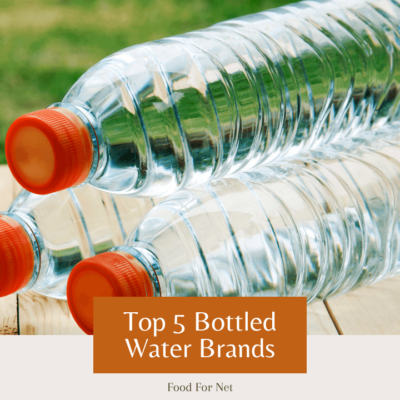
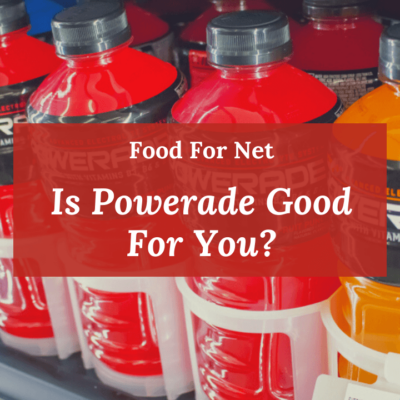
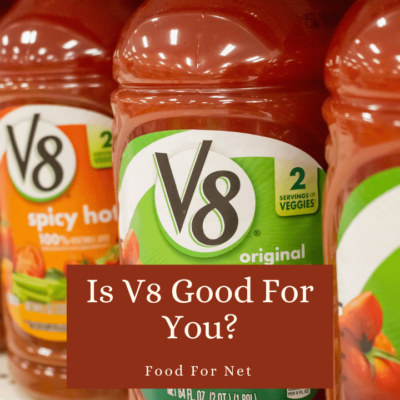
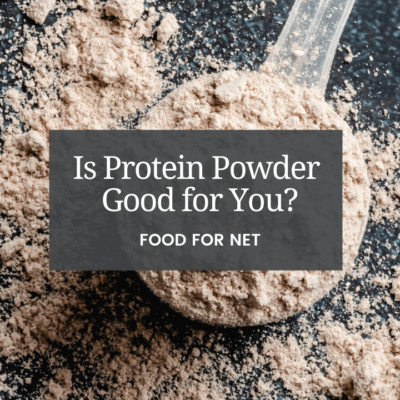

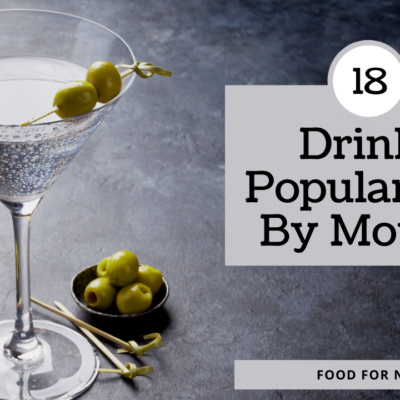
 Is Lemon Water Good For You?
Is Lemon Water Good For You?
Leave a Reply